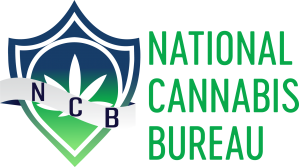South Dakota members of the Senate Health and Human Services Committee, with a vote of 5-2, decided last Wednesday to postpone any additional proceedings regarding legislation (SB 82), which aims to limit the medical cannabis access to a sweeping number of patients, NORML reports.
The proposed bill aimed to limit patients to receiving medical cannabis recommendations exclusively from their primary care physician or other healthcare providers suggested by their primary doctor. Any doctors who provided recommendations but did not comply with the bill’s strict criteria would have faced criminal charges.
As South Dakota Searchlight reports, out of nine bills proposed to modify South Dakota’s medical cannabis regulations in this legislative session in Pierre, seven are still under review. These include measures to increase the cost of dispensary licenses, authorize cops to search dispensaries, and require prescribers to inform a patient’s primary care doctor when they get their medical cannabis card.
According to Jeremiah Murphy, a lobbyist for the Cannabis Industry Association of South Dakota, the good (if you can call it that), news is that of the nine bills, the shut down Senate Bill 82 was the most troubling. It would have made it significantly easier for doctors who offer medical cannabis as a treatment option to face criminal charges.
“Senate Bill 82 was absolutely the most critical threat out of what’s out there,” Murphy told South Dakota Searchlight. “They got a lot of feedback from patients on that one. They poked the beehive, and bees came out.”
In his testimony, Murphy stressed that 30% of Americans do not have a primary care physician.
The potential for criminal charges against doctors was a crucial consideration for Sen. Erin Tobin, R-Winner. Tobin, a nurse by profession and chair of the Senate Health and Human Services Committee, also serves on the Medical Marijuana Oversight Committee alongside the bill’s sponsor, Sen. Jim Mehlhaff, R-Pierre. For Tobin, a major issue with the bill was its effort to legally define “primary care provider,” a term and profession that’s tricky to concretely specify due to the flexible nature of roles within our healthcare system. Some folks see specialty doctors for their primary care, others rely on clinics. Putting aside all the War on Drugs rhetoric within the bill, we simply don’t have a solid, organized enough health care system for it to make sense.
Tobin challenged that should the bill pass, doctors who fall somewhere in the gray area, or would as a result, be quite hesitant to prescribe cannabis to patients who would otherwise benefit from it. “If there’s a questionable piece to this, doctors are just going to pull out,” Tobin noted.
Back in 2020, South Dakota’s electorate voted to legalize medical cannabis, as favored by 74% of voters. As often happens, in the year since, anti-cannabis lawmakers have put concerted effort into dialing back or revoking this law however possible. There are presently more than 13,000 residents who are officially registered with the state for medical marijuana access, and over 250 practitioners are authorized to provide cannabis recommendations.
Opponents additionally pointed to the lack of solid evidence suggesting that anyone is taking advantage of this current system. One must also keep in mind how it would impact the veterans, who often greatly benefit from cannabis for PTSD, who see a primary doctor through the Veterans Affairs Health System. VA doctors currently aren’t allowed to prescribe cannabis. This could be changing.
As High Times reported, in June of 2023, the Senate Appropriations Committee passed a budget bill that incorporates an amendment permitting doctors from the VA to recommend medical cannabis to their patients in states where it’s legal. This amendment is now part of the sanctioned legislation set to finance the VA for the Fiscal Year 2024.
The amendment, approved through a voice vote and introduced by Senator Jeff Merkley, an Oregon Democrat, aims for outcomes similar to those in a House-reintroduced bipartisan bill. This bill has the support of Oregon Democrat Representative Earl Blumenauer and Florida Republican Representative Brian Mast, an Army veteran who lost both legs in Afghanistan. Blumenauer and Mast jointly serve as co-chairs of the Congressional Cannabis Caucus.
Senator Merkley explained that the recently passed measure in The Senate Appropriations Committee “simply says, in states that have a medical cannabis program, that a veteran’s doctor can talk to their veteran patient about the pros and cons of medical cannabis and fill out related paperwork should a veteran decide to participate in a state program where such paperwork is required.”
Back in South Dakota, it’s also important to understand the challenge faced by Native American citizens in finding a primary care doctor. Often, the only viable healthcare option available on these reservations are the physicians at the Indian Health Service (IHS). Similar to the VA, the IHS prohibits its doctors from prescribing medical cannabis, as it remains illegal under federal law.
The post South Dakota Legislators Shut Down Bill Restricting Medical Cannabis Access for Patients appeared first on High Times.

